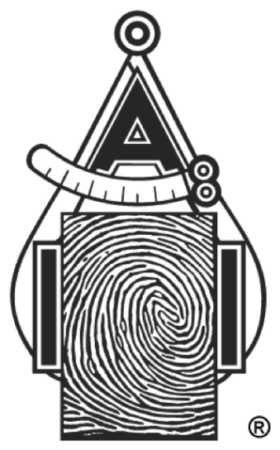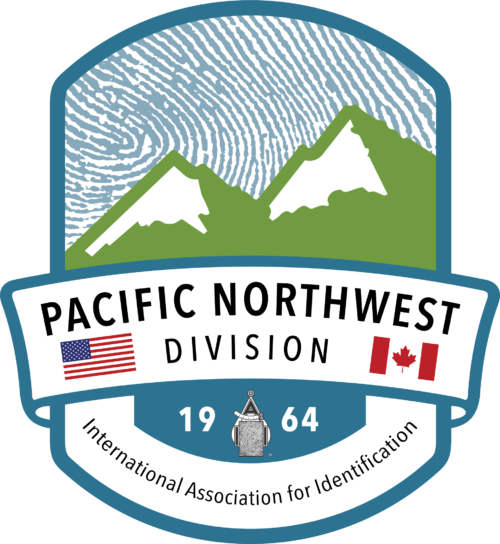Looking to get hired in a forensic science field, but just can’t seem to get your foot in the door?
We will walk you through 10 steps to increase your chances of getting hired in a highly competitive field!
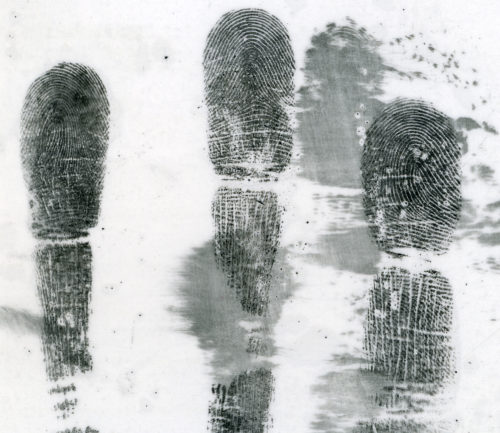
1. Get the real picture
“Is it just like CSI?”
This is a question all forensic scientists have been faced with at speaking events, or heck, even at family dinners when your cousin’s girlfriend asks you what you do for a living.
The answer is…NO. People tend to have an unrealistic vision of what forensic scientists do, and at no fault of their own. Hollywood has done a magnificent job of sensationalizing the profession. In fact, as I flew to St. Louis two days ago the gentleman sitting next to me asked me what I do and when I responded, the first words out of his mouth was “my wife is fascinated with that stuff. So is it really like what you see on TV?” Not to get sidetracked, but this very response is why at times it’s easier to just say you work in a lab or office. People will move on much more quickly!
These same misconceptions are plaguing students and professionals on a daily basis, which is why I strongly suggest that before entering a forensic science discipline, interview people from various organizations to get the real picture. Or request job shadows with crime lab or crime scene personnel. This will not only show initiative on your part, but will also help you determine if the work truly suits you.
2. Narrow your scope
Forensic science is a broad topic encompassing a multitude of disciplines. Each discipline is not mutually exclusive to the others, and you will recognize elements of overlap at times. However, gaining an understanding on what your focus of interest is will help as you formulate a vision for your future.
Forensic science is the overarching umbrella of which specific disciplines fall beneath. For instance, The Organization of Scientific Area Committees for Forensic Science (OSAC), structurally organizes the scientific area committees into five broad topic areas, and then further subdivides the topics into 25 discipline specific subcommittees.
Review the OSAC Organizational Structure from NIST below…
And research the various disciplines listed on this diagram to better develop your initiatives to reach your goals.
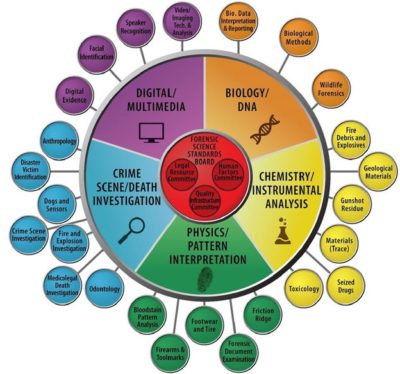
3. Choose an appropriate course of study
One reason narrowing your scope is imperative is to influence what area of scientific study you will seek. If you have already completed your college education and are looking for a career change, this will also help you determine what disciplines you currently have the skill set to perform.
There was a day when many different educational backgrounds were considered valuable assets to a forensic science laboratory or crime scene unit.
Times have changed.
A culture shift has occurred where laboratories are primarily focused on hiring employees who possess Bachelors, Masters, or PhDs in a natural science such as biology, chemistry, or physics. This by no means indicates that every organization performing forensic analysis requires such fields of study, but the majority will. So to increase your chances of getting hired, as well as increase the agencies you are qualified to apply at, do yourself a favor and pursue a degree in a natural science.
4. Internships
I cannot overstate how VALUABLE internships with crime laboratories or law enforcement agencies are!
Not just for personal knowledge or gaining valuable skills. You may also be able to assist agencies with validation studies, research, advancement of analytical procedures, work side-by-side with analysts on casework, or aid in increasing case workflow. From a personal standpoint, the intern is benefiting…but in the end the lab is gaining valuable data and time to direct toward their operations.
Guess what – you are not the only person interested in working in forensic science. Competition is steep, and internships set you apart from other candidates.
Plus…BONUS…you will have experience to include on a resume or job application, not to mention direct laboratory knowledge to speak to in an interview.
5. Make good life choices
This bares repeating – Make good life choices.
Broad statement I know! I intentionally leave this topic broad for various reasons. I don’t want to tell you something like “never get into trouble.” This isn’t realistic…for the most part.
What many agencies are looking for is well rounded individuals who are able to own-up to their shortcomings and learn from them.
With that being said, there are certain indiscretions that will impact your hiring potentials, including inappropriate social media posting. So as you progress through high-school, college, or beyond, be mindful of what your end goal may be. Background investigations vary depending on the agency in which you apply, and can range from a basic credit and fingerprint check, to an in-depth lie detector test. Be cognizant of your choices to ensure you allow for endless future career possibilities. Don’t limit yourself.
And in the end, understand that everyone has made mistakes, but you must be honest about your past. So be truthful and thoughtful about how you learned from choices you’ve made. Maturity is also a valuable attribute in an employee.
6. Be willing to relocate
Agencies are receiving massive numbers of applicants for entry level forensic science positions. The competition and limited number of positions in the forensic sciences across the nation contribute to this necessity. Certain cities may have 100 or fewer forensic science positions available, compared to professions such as nursing, teaching, technology, etc. which represent thousands of positions. But don’t let that deter you from pursuing your dreams. Just approach your future with an open mind that relocation may be in your future, even if that relocation is on a temporary basis.
Expecting to remain in your ideal location for your entire career may limit your opportunities.
7. Focus research on scope
While you pursue your degree(s), keep in mind the potential impact research focused on your discipline may have on a job application or during an interview for a future position. For instance, if your desired forensic discipline is wildlife forensics, consider developing research studies during your course of study which focus on wildlife forensics. Not only will your knowledge of the subject matter increase, but it will give you something valuable and tangible to discuss during a job interview. Subject matter information you gained through performing such research will enhance your answers to subject matter questions during an application process.
8. Make connections
I suppose this goes for every industry, as we’ve all heard the saying “It’s not what you know, it’s who you know.” Well, that is relevant to forensic science as well!
However, in forensic science the adage “It’s what you know and who you know” may be more appropriate.
In the end, making connections will only bolster your credibility to prospective employers and allow your name to stand out among a heaping pile of prospective candidates.
How do you make connections though?
- Intern with a crime laboratory or law enforcement agency
- Ask for a lab tour
- Request an informational interview with the lab director or analysts within your desired discipline
- Attend formal training and conferences
- Present research at conferences
- Join professional organizations – THIS IS HUGE!
- The International Association for Identification (IAI) and/or regional divisions such as the Pacific Northwest Division of the IAI are great places to start. Even as a seasoned professional, joining and becoming more involved with a professional organization will exponentially increase your networking opportunities.
Any connection you develop must be impactful to the receiver so always maintain professionalism…as you never know who might be on the other end of an interview someday.
9. Anticipate Competition
You will be competing against hundreds of candidates for entry level positions. And then once you’ve been hired…the competition may continue throughout your career!
This goes back to many topics mentioned previously. Start compiling letters of recommendation, published research, presentations, internships, professional memberships, etc. to help you stand apart.
10. Interview Preparation and Follow-up
Are there any ways to fully prepare yourself for an interview?
Maybe not, but here are a few general tips to guide you through preparation and follow-up.
- Research the agency you are interviewing with, especially if a law enforcement agency. Gain understanding in their organizational structure, offerings, customers, region specifics, and current news worthy information. Some agencies include questions about their agency, structure, administration, etc. to evaluate the degree of research a candidate has dedicated to their agency.
- Contact the agency to ask questions about the lab, what examinations they perform, how large the unit is, etc. Be transparent that you are interested in applying for the open position and seeking additional information about the agency.
- Reach out to contacts you’ve made in the field, or even other professions and prepare a list of general interview questions to practice genuine answers for.
- Lastly for preparation…get an audience. Practice talking about your background, qualifications, knowledge, experience, or personal information. It may feel embarrassing at first, but I guarantee that through this process you will be better suited to anticipate questions and become more relaxed in an actual interview.
- The interview does not have to end after they ask you the last question. Prior to, or after the interview, request a laboratory tour and/or meet and greet with lab personnel. Some agencies will offer this immediately, but it’s not always standard practice. If it’s not standard, this can set you apart from other candidates and allow you an opportunity to connect with individuals and determine if the environment suits you. If you tour the lab, always remember your interactions are still part of the interview process, even though not formalized. Your interactions with staff will most definitely be reported to upper management as feedback about you as a potential candidate.
- This may be old school, but I’ve always held true to this tradition…follow-up your interview by sending a hand-written card to the supervisor. Does anyone still do this? I know, maybe I’m older than I think! The point though is to develop a method for follow-up that suits your style. If that’s email, phone, or snail mail, the goal is the same. Thank the employer for the interview, express your interest in the position, and discuss your hopes to continue development of a professional nature. This won’t promise you the job, but will make a lasting impression.
- Lastly, if you receive notification from the employer that additional information is needed, complete it in a timely manner – expedited in fact. Additionally, ensure you thoroughly completed tasks assigned. You are still being evaluated at this stage and if you can’t follow through with an assignment in a thorough and timely manner, the employer may immediately disqualify you as a desired candidate. I’ve seen it happen!
If at first you don’t succeed, refine, and try again. Internally evaluate areas where you need improvement either with your resume, application, or interview processes. Seek feedback from your interview panel to allow for growth and continually self evaluate.
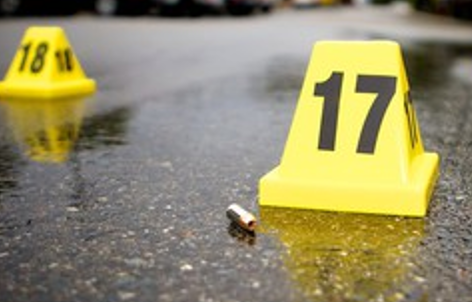
Below you will find a few websites to help you stay informed about job opportunities. Review the job descriptions and qualifications to learn more about what is required to pursue a job in your discipline of interest. But always remember, the minimum qualifications may not accurately describe the true qualifications of people being hired at that agency – as many candidates exceed the minimum qualifications.
Crime Scene Investigator Network
Pacific Northwest Division of the IAI
International Association for Identification
American Academy of Forensic Sciences
Contact Ridgeline Forensics to learn more about getting hired in the field and/or submit interesting articles for the benefit of the forensic community!



